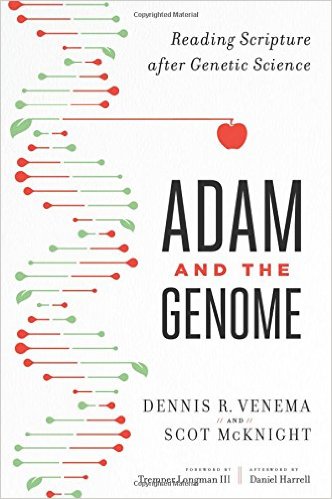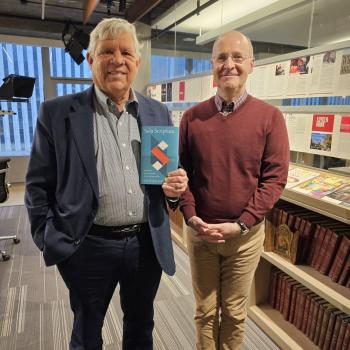On p. 113 Scot suggests that the authors of Gen. 1-11 were familiar, at least at the level of ideas, with some of the concepts found in other ANE creation and flood stories. In an age before there were many texts, and mostly oral traditions, one wonders how the authors of Genesis would have come across such traditions in the Holy Land. Might it not be better to suggest that various of these cultures knew of events in the past, for example a large regional flood that wiped away existing civilizations in the then know world, that they then all wrote about using their own ideologies and theologies.
As for the similarities in the creation stories in and outside the Bible, honestly there isn’t much to say, except on a few rather minor points. There are dramatic differences mainly: 1) apart from the Genesis account we are dealing with a polytheistic description of the origins of the universe; 2) creation takes place due to war in heaven, or at least a struggle in these other accounts; 3) while there is similarity in the assumption that some deity created human beings de novo (no evolution in any of these accounts) the purpose of creating humans in the non-Genesis accounts is so that the gods can stop working, and pass off their work load onto human beings. As the Atrahasis account says “let them carry the toil of the gods” (p. 116). 4) Biblical and non-Biblical accounts do speak of the humans being fruitful and multiplying, for the sake of the prosperity of the land, but note the reason why in the non-Genesis accounts So the gods can be served (with sacrifice etc.). Yahweh, however needs no such service, and the working of human beings is so they can fulfill the divine mandate of being co-creators and co-governors of the earth with God. 5) as God mentions in thesis 1 (p. 119), the Biblical God is not part of the cosmos, he is outside it, unlike the gods of the ANE, and it is created not from pre-existing parts (even parts of deities in some ANE accounts), but simply by God speaking.
My colleague Bill Arnold sums up things nicely— “In a word, ancient religion was polytheistic, mythological, and anthropomorphic, describing gods in human forms and functions while Genesis is monotheistic, scornful of mythology, and engages in anthropomorphism only as figures of speech.” (quoted on p. 119).
Just so, and this brings up an important point. The authors of Gen. 1-11 are not simply reflecting ANE culture in their account. They are not bound to such conventions and accounts, indeed if anything they are critiquing such accounts, and substituting a monotheistic one. This being the case, I don’t much see the point in saying that the Genesis account borrows in any significant way from these other accounts, or in saying it reflects the ancient science of such accounts. It really doesn’t. It has very different basic assumptions about God and about how creation happened and why it happened.
This certainly doesn’t make Gen. 1-11 a modern scientific account of things. It’s not an attempt at any kind of science, ancient or modern. It’s a poetic description of what God did long long ago. On the plus side, I agree with Scot’s take on the role of Wisdom as God’s agent of creation as seen in Proverbs and NT literature later, such as Col. 1.15-20. Gen. 1-2 however don’t really mention Wisdom personified, never mind Jesus as God’s Wisdom.
In regard to thesis 2, there is a tad perhaps of evidence for the use of the conflict motif found in the ANE accounts in Ps. 74.13-16, and in fact much more in Rev. 12, for example. Michael Heiser in his book The Unseen Realm (see review and dialogue last Fall on this blog) I think demonstrates beyond reasonable doubt that it is one thing to say of pagan deities that they are not genuine gods, it’s another thing to say those beings that some people call gods don’t exist. The Biblical authors, including Isaiah, are misread if one thinks the latter is what they are saying. As Paul suggests in 1 Cor. 8-10, these other entities are not ‘nothing’ they are lesser beings he calls demons that can bother, bewitch, and bewilder God’s people, and so one must be wary of them.
















